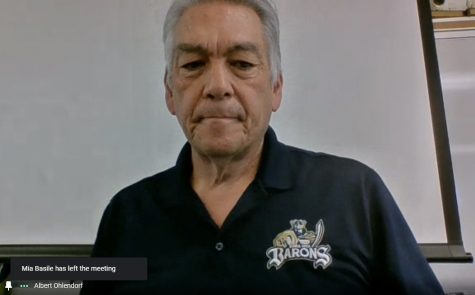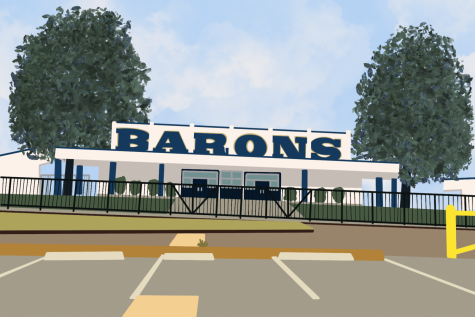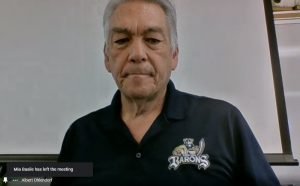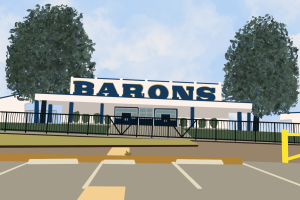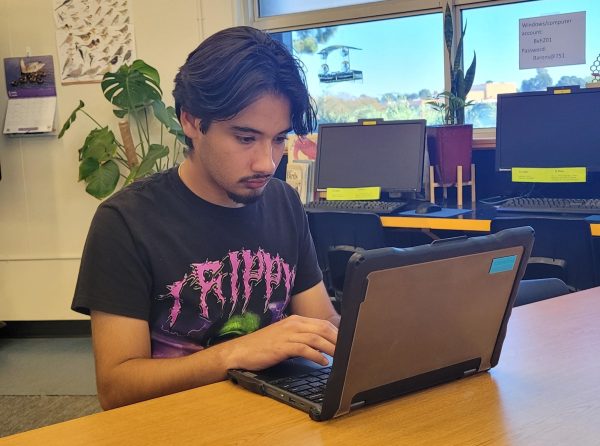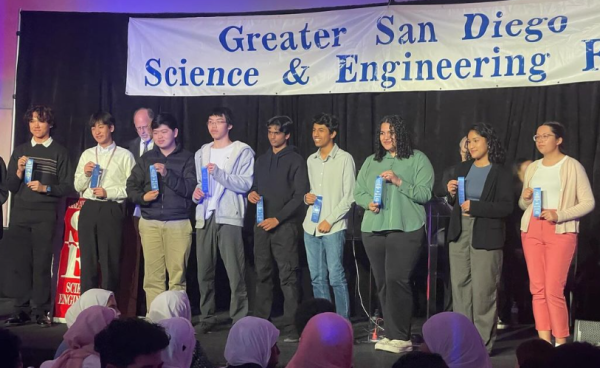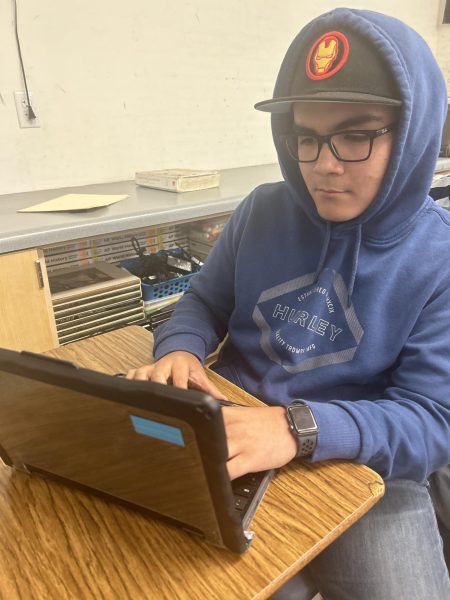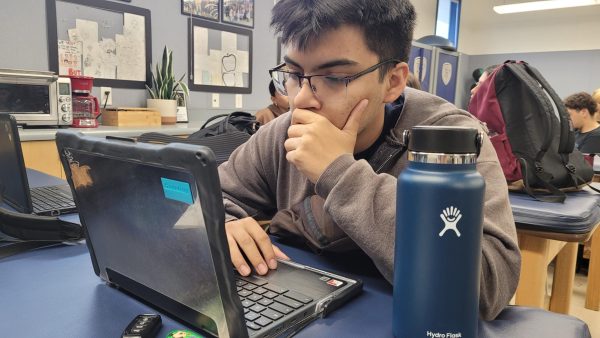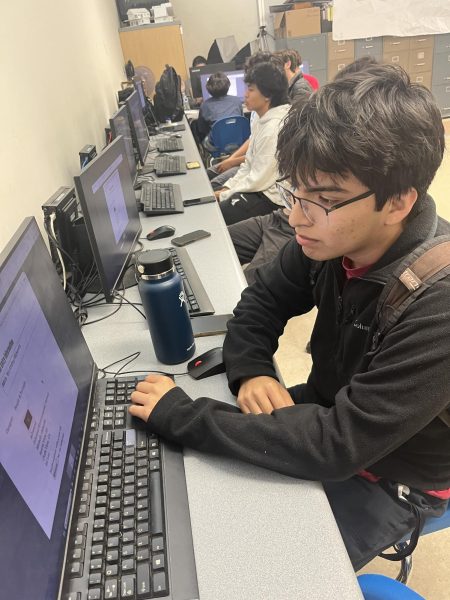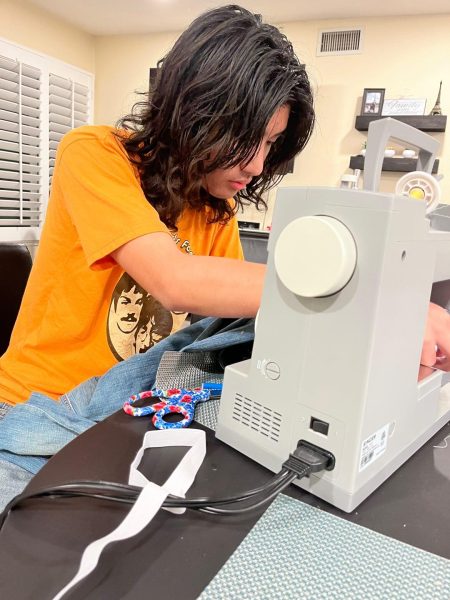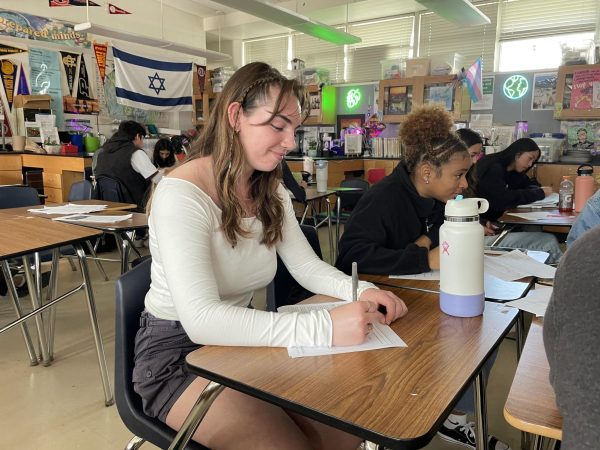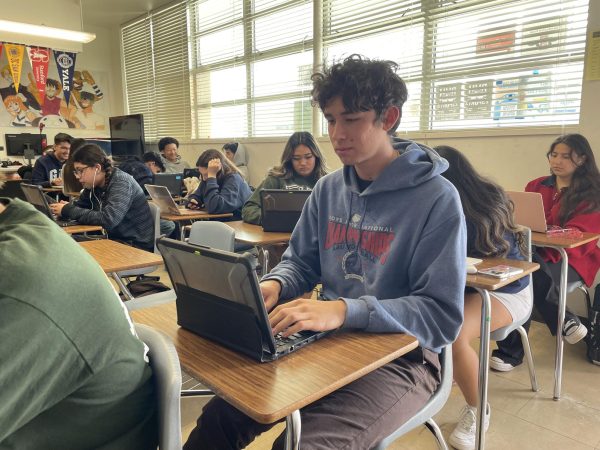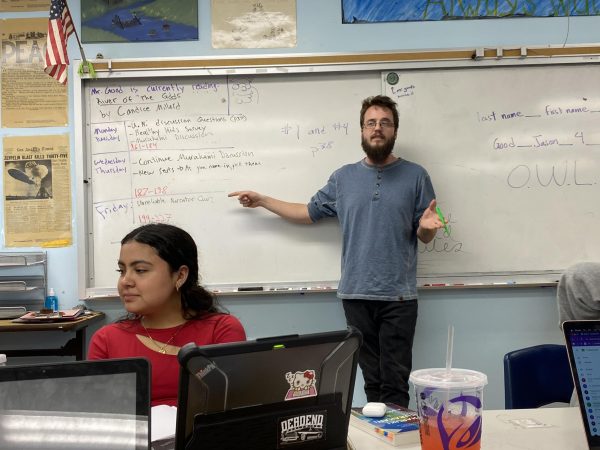The final test
Teachers adapt their final exams in distance learning
With their caffeinated drink of choice at hand, students prepare themselves for long nights of studying ahead. Cramming a semester’s worth of information days before their final is a common occurrence during the end of the semester for many Bonita Vista High (BVH) students. However, distance learning has presented a unique situation where BVH teachers are adjusting the finals they are administering to their students.
“Distance learning has required us [teachers] to recognize that we can’t have single moment high stake assessments; it’s not equitable. We need to provide opportunities that are spread out over time,” English 10 Accelerated, International Baccalaureate (IB) English Higher Level 1 and Theory of Knowledge (TOK) teacher Jason Good said.
Good is conducting a final for all of his classes, however, it is unlike the traditional final. In his English 10 Accelerated class, he is conducting a smaller, slimmed-down version of the final. For IB Literature, Good is giving his students a small general class assignment that will meet the requirements of a final exam that the district lays down. According to Good, the Sweetwater Union High School District requires all teachers to give an End of Course exam (EOC).
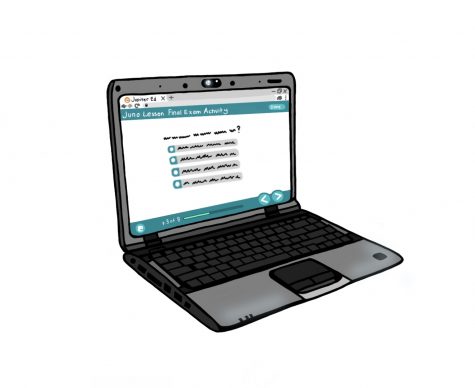
“I don’t want students to be overburdened which is one of the big inspirations for keeping the final exam assignment itself quite small,” Good said.
One reason Good has formulated a simpler version of his final exam is due to mental health. He recognizes that students are having a difficult time at home as he relates to that as well. Good mentions the challenges students face while studying from homes, such as various distractions and at-home responsibilities they need to meet. In addition, Good says that the final assignment is not going to be worth as much as a traditional final.
“The last thing I want to do is give a high stakes test that all of my students fail because then they [will] leave feeling bad and that’s not my goal,” Good said.
Accelerated Biology and IB Environmental Systems and Societies (ESS) teacher Jennifer Ekstein has decided not to conduct a formal final. Specifically for her IB ESS class, she will be working with students on their Internal Assessment (IA) since students who are taking the IB exam next semester will need to turn an IA in. She is also planning to use her time to conduct chapter exams and interventions for struggling students.
“It’s come down in recent media that D and F grades are up. We [teachers] felt that in our classroom, we could do a better job of targeting those students during those two hours [rather] than having them sit through a test that doesn’t measure accurately what they learned all semester,” Ekstein said.
Ekstein describes that the EOC that the district presented to her Accelerated Biology cohort did not align with the standards they taught during the first semester. She furthers that it is a better use of her and her students’ time to help them improve their grades in the hour and a half left in class.
“We’re [teachers] helping them [students] do better so they’ll feel better about themselves,” Ekstein said. “I’m going to target specifically what they’re missing and what they didn’t understand. What better way in the end of the semester to get them to feel positive about what they’ve accomplished in class when they go from an F to a C, or D to a B.”
Moreover, Ekstein does not see the benefit in conducting a final. Instead, she sees benefit in targeting and connecting with the students who need extra assistance from teachers.
“For us, as teachers, connecting with students [who need support] is really important which we don’t necessarily get to do all the time. This is the last ‘hurrah’ for some students because this is going to be their final grade on the report card,” Ekstein said.
Advanced Placement (AP) Calculus AB, AP Calculus BC and IB Math Standard Level (SL) 1 teacher Benjamin Chan is conducting a final but has adjusted it to better suit distance learning’s environment. For his IB math SL class, the exam is being broken up into five parts with each day having a different topic. For his AP Calculus AB and BC class, he is conducting a short final exam activity.
“We [teachers] know [that] right now, extra stress is not what anyone needs. We want a summative learning experience, but don’t want it to be high stress,” Chan said. “This [final exam activity] is our way of keeping students accountable.”
We [teachers] know [that] right now, extra stress is not what anyone needs. We want a summative learning experience, but don’t want it to be high stress. This [final exam activity] is our way of keeping students accountable
— AP Calculus AB, AP Calculus BC and IB Math SL 1 teacher Benjamin Chan
The final exam for Chan’s IB Math SL 1 and final exam activity for AP Calculus AB and BC are set up as a Juno lesson in Jupiter Grades which automatically grades each question and gives the students immediate feedback if they got the question correct. This format gives students the opportunity to retry the question until they are able to get the answer correct. Chan’s intent for this style of final gives a second chance for students to learn topics they have not quite mastered. Chan emphasizes that he wanted to reinforce learning without it being high stakes.
“I want students to bring everything [they learned] together. Since [my exam] is not high stress, I’m not hesitant about doing it. I want it to be a summative learning experience that [allows] students [to] go back and look at everything we’ve learned,” Chan said.
Furthermore, Chan explains that the preparation for the AP Calculus AB and BC exam was a factor in his decision to conduct a final exam activity. AP exams will be happening in May and Chan saw this as an opportunity to prepare his students for the upcoming AP exam.
“I want to find [the] least stressful ways possible to push [students] to remember [course material] because May [is] going to come and [they] need to know [these skill sets] for that AP exam,” Chan said.
Good, Ekstein and Chan believe that a challenge with conducting a final over distance learning is having limited instruction time for their classes. They are having to scale back on the amount of lessons they teach in class which makes it difficult to get through all the course material. Ekstein also mentions that conducting a final without a secure browser has been an issue because, without it, the final exam conducted over distance learning would not be an accurate gauge of what her students know.
Overall, although some teachers support conducting a final during distance learning, teachers like Good do not think teachers should be giving EOC’s to students during this time. He is opposed to giving a high stakes single day test during distance learning.
“We [teachers] do two things when we give big high stakes tests. We stress students out, which isn’t good, and we lose instructional time. We [are] already short on time and [by conducting final exams] we are losing more time to see what we didn’t cover; but we know what we didn’t cover,” Good said. “I wish we weren’t doing End of Course exams.”
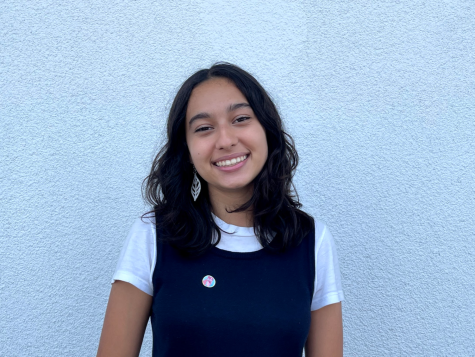
I am a Senior at Bonita Vista High and this is my second year as a staff member for the Crusader. I am now CPS Editor and previously was News Editor. ...


